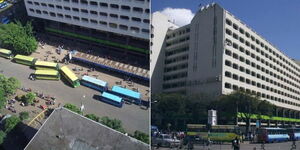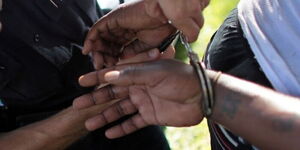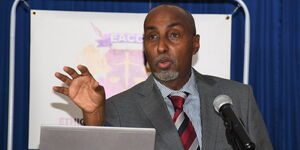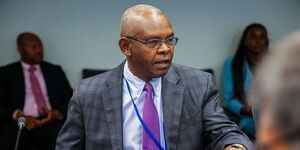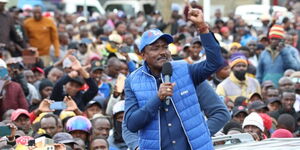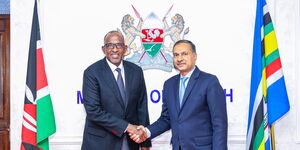Education CS George Magoha is yet to reveal crucial information contained in the Competency-Based-Curriculum (CBC), nearly two weeks after President Uhuru Kenyatta released the report.
The Ministry of Education only released a summary of the report dubbed 'Enhancing Access Relevance Transition, Equity and Quality for Effective Curriculum Reforms Implementation' which detailed the changes in the education sector.
It included continuous assessments for students, teaching students to embrace critical thinking and decision making, the transition of Primary Grade 6 learners to Junior Secondary Grade 7 and domiciling of Junior Secondary School (JSS) Grades 7, 8 and 9 within the Basic Education structure.
The transition of JSS learners to Senior Secondary School (SSS) Grades 10, 11 and 12; Transition from Basic to Technical and Vocational Education and Training (TVET); Transition from Basic to University Education; positioning Special Needs Education (SNE) within the Basic Education Curriculum Framework (BECF); foregrounding Competency-Based Assessment (CBA) at all levels of learning and conceptualizing and designing Competency-Based Teacher Education (CBTE).
Magoha was scheduled to release the full report within a fortnight. However, in-depth details of the proposals made by the selected taskforce remain scanty. Newly appointed Education CAS Dr. Juma Jwan said that the document was printed by the Government Press but is yet to released to the public.
"Once we finish printing, we pass the document to the relevant ministry. We do not retain any copy," Govt Press boss Mwenda Njoka said, distancing himself from the delay.
Among the key questions that Magoha needs to answer is how the CBC curriculum will be funded. Costs are expected to rise as the government will have to invest in infrastructure and the adoption of science and technology.
Stakeholders want to know how the funds will be raised and whether the government will add extra costs on parents. Magoha also needs to clarify how teachers will be trained to adapt to the rigorous task of adapting to CBC changes.
Teachers will play a key role in shaping the future of the students as they will aid the learners to choose courses.
The double intake of students is also a fundamental problem facing the CBC change. Congestion of schools and lack of infrastructure may plunge it into more crisis.
The summary report released by Magoha only offered insights into the models that will be used to implement CBC but declined to clarify how it will be done. For example, it stated that the government will;
1. Undertake progressive expansion of capacities of existing secondary schools that have adequate land to accommodate more learners in 2023.
2. Make provision for primary schools that have adequate infrastructure to establish a Junior Secondary school.
3. Merge under-enrolled primary schools, in close proximity, and improve the infrastructure in one to create a Junior Secondary School.
4. Develop a framework to facilitate the sharing and management of infrastructure among primary and secondary schools that will be established in the same compound.
5. Develop a national school transport policy and facilitate the establishment of a pooled school transport system, where possible, to enhance day schooling.
6. Enhance the capacity of the School Equipment Production Unit (SEPU) to facilitate the provision of resources for Science kits and other related materials for effective implementation of the Junior and Senior Secondary Education curriculum.
7. Establish multi-agency National, County and Sub-County Transition Committees for effective transition and placement of learners from Primary to Junior Secondary.
8. Develop a Public-Private Partnership (PPP) policy and a framework for Basic Education to incentivise the private sector to supplement access to basic education.
These pointers, education stakeholders believe, are well addressed in a full report presented to Magoha. However, others argue that it is a working progress.

